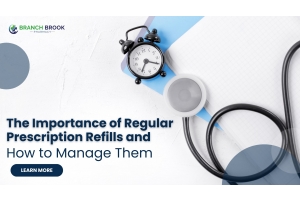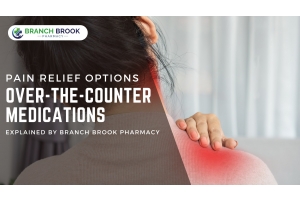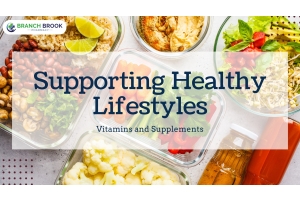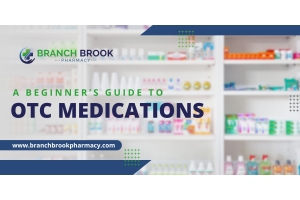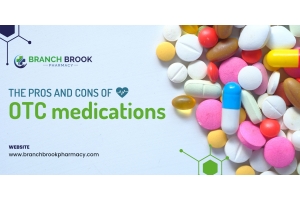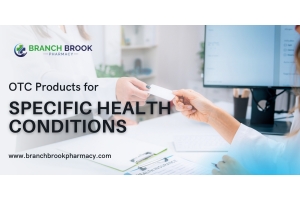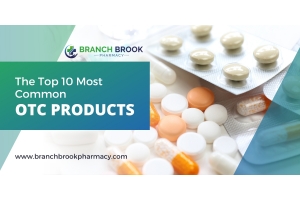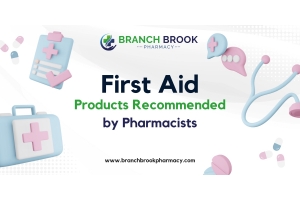Reducing the Risk of Stroke: Effective Strategies and Prevention Tips
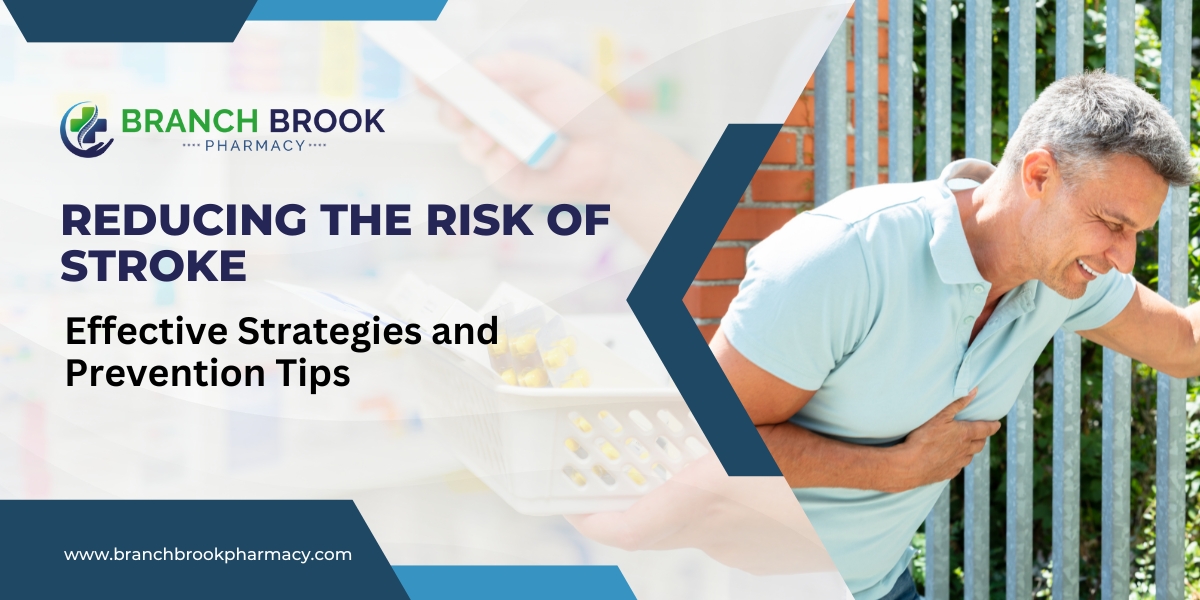
Stroke is a leading cause of death and disability in the U.S. It is a serious medical condition that can have life-altering consequences, affecting a person's physical and cognitive abilities. It affects people of all ages and races and occurs when blood flow to the brain is interrupted or reduced. When this happens, brain cells die because they don't get the oxygen they need to function properly, which can lead to serious problems with movement, speech, thinking, memory, sensation, and other abilities.
Fortunately, there are many things you can do to reduce your risk of stroke or help prevent one from happening if you've already had one. In this article, we'll talk about how you can protect yourself against stroke by being aware of what puts you at risk for having one happen, as well as some simple strategies that will lower your chances of having such an event occur in the first place, so that if it does happen, recovery will be quicker and less painful than before.
Reasons for Stroke
Although many articles are written about stroke, we aren't aware of it until it affects us or someone we love. This is the brutal reality of any health issue. In reality, the real problem is that we ignore it until it gets worse. While you may have ignored many articles on stroke causes, we insist that you go through this one and identify the symptoms. Take regular checkups and follow preventive measures to reduce the risk of stroke. Don't wait until it's too late, start taking action today. Let’s go through the reasons:
-
High Blood Pressure:
Picture this: Your blood vessels are like highways, carrying blood throughout your body. Now, if your blood pressure is consistently high, it's like having traffic congestion on those highways. This increased pressure can weaken blood vessels, making them prone to blockages or ruptures, leading to a stroke. So, it's crucial to keep an eye on your blood pressure levels and work with your doctor to manage it effectively.
-
Smoking:
We all know smoking is bad for our health, but did you know it's a major risk factor for strokes too? Smoking damages blood vessels, increases the formation of blood clots, and accelerates the buildup of plaque in your arteries. These factors can all contribute to the development of a stroke. So, if you're a smoker, consider quitting today to significantly lower your stroke risk. Your lungs and your brain will thank you!
-
Diabetes:
Ah, diabetes, the sweet thief of good health. This condition affects how your body processes sugar, leading to high blood sugar levels. Over time, high blood sugar can damage blood vessels, making them more susceptible to clots and blockages that can trigger a stroke. If you have diabetes, it's essential to work closely with your healthcare team to manage your blood sugar levels effectively and reduce your risk of a stroke.
-
Unhealthy Diet:
You've heard the phrase "you are what you eat," right? Well, when it comes to stroke risk, a poor diet can be a significant contributor. Consuming too much unhealthy fat, sodium, and cholesterol can increase your chances of developing high blood pressure and high cholesterol levels. These, in turn, can raise your stroke risk. So, let's swap those processed foods for fresh fruits, veggies, whole grains, and lean proteins to nourish our bodies and protect our brain health.
-
Sedentary Lifestyle:
Imagine this: Your body is built to move, but if you spend most of your time sitting like a couch potato, it can have serious consequences for your health. Being inactive can lead to weight gain, high blood pressure, and increased cholesterol levels, all of which are risk factors for stroke. So, let's lace up those sneakers, take regular walks, dance to our favorite tunes, or find an activity we enjoy to get those endorphins flowing and reduce our stroke risk.
Signs of Stroke - The warning signs
Did you know that recognizing the signs of a stroke can be a lifesaver? It's true! Being aware of the warning signals and acting swiftly can make a significant difference in the outcome. So let's take a quick look at the signs of a stroke. Should the symptoms worsen, heed the cues and have the person rushed to the hospital immediately.
1. Sudden Numbness or Weakness:
One of the most common signs of a stroke is sudden numbness or weakness, especially on one side of the body. You might experience a tingling sensation or find it difficult to move your arm, leg, or face. Pay attention if it happens out of the blue, and don't brush it off as a momentary inconvenience.
-
Trouble Speaking or Understanding:
Another important sign of a stroke is difficulty speaking or understanding speech. You may suddenly have trouble finding the right words, slur your speech, or have difficulty comprehending what others are saying to you. If you or someone you know experiences sudden communication difficulties, it's crucial to take it seriously.
-
Sudden Vision Problems:
Blurred vision, double vision, or a sudden loss of vision in one or both eyes can be warning signs of a stroke. If your sight becomes impaired unexpectedly or you notice any changes in your visual perception, seek medical attention immediately.
-
Severe Headache and Dizziness:
A sudden and severe headache, unlike any you've experienced before, can be a red flag for a stroke. Along with the headache, you might feel dizzy or have difficulty maintaining your balance. Pay attention to these symptoms, especially if they appear without any obvious cause.
-
Loss of Coordination or Balance:
Experiencing a sudden loss of coordination or balance is another significant sign of a stroke. You might find it challenging to walk straight, feel unsteady, or have difficulty with fine motor skills like holding objects or buttoning a shirt. Don't dismiss these changes as clumsiness—seek medical help promptly.
OTC Pills for a Stroke: The Basics
When it comes to strokes, time is of the essence, and seeking immediate medical attention is crucial. However, it's essential to understand that OTC medications are not suitable for treating a stroke. However, we'll explore some basic OTC options that can help promote overall cardiovascular health.
-
Aspirin:
Aspirin is a commonly known OTC medication that many people associate with heart health. While it's not a direct treatment for strokes, it can play a role in stroke prevention. Low-dose aspirin (usually 81mg) may be recommended by a healthcare professional for certain individuals at high risk of stroke. Aspirin works by preventing blood clot formation, which can help reduce the risk of ischemic strokes. However, it's essential to consult with a healthcare provider before starting aspirin therapy, as it may not be suitable for everyone.
-
Omega-3 Fatty Acids:
Omega-3 fatty acids, commonly found in fish oil supplements, have gained popularity for their potential cardiovascular benefits. While research suggests that omega-3 fatty acids may have some positive effects on heart health, their direct impact on stroke prevention is still being studied. Incorporating omega-3 rich foods, such as fatty fish (salmon, mackerel), walnuts, and flaxseeds, into your diet may be a more natural and beneficial way to obtain these nutrients.
-
Magnesium:
Magnesium is a mineral that plays a vital role in many bodily functions, including maintaining a healthy heart rhythm and blood pressure. While magnesium supplements are available over the counter, their effectiveness in preventing strokes is not well-established. It's generally recommended to obtain magnesium through a balanced diet that includes foods like leafy green vegetables, nuts, and whole grains.
It's essential to approach OTC pills with caution and consult with a healthcare professional before starting any new medication or supplement. While these OTC options may have some potential benefits for cardiovascular health, they are not intended as standalone treatments for strokes.
Conclusion:
Being able to recognize the signs of a stroke is essential for swift action and potentially life-saving interventions. Remember the acronym FAST: Face drooping, Arm weakness, Speech difficulties, and Time to call emergency services. If you or someone around you experiences any of these signs, call for help immediately.
To reduce the risk of strokes, focus on making lifestyle changes such as adopting a healthy diet, engaging in regular exercise, managing blood pressure, quitting smoking, and controlling other risk factors. By taking these proactive steps and staying informed, you can promote your overall cardiovascular health and significantly lower the risk of stroke.
Stay calm, stay informed, and together, let's raise awareness about stroke symptoms, ensuring that no signs go unnoticed. By being alert and proactive, we can make a difference and potentially save lives!
Disclaimer: This blog is for informational purposes only and should not be considered a substitute for professional medical advice. If you suspect a stroke, seek immediate medical attention.
Also Read: The Pros and Cons of Antidepressants During Pregnancy - Branchbrook Pharmacy



